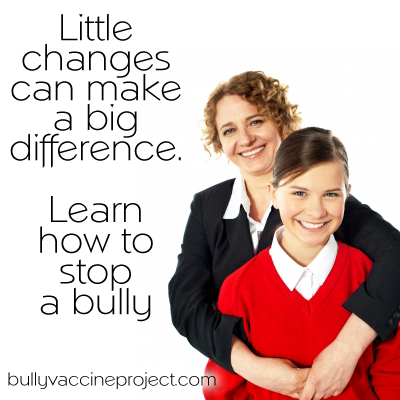What teachers and administrators need to know so their response to reports of bullying will actually help stop bullying instead of making it worse.
 Teachers are on the front lines. How they respond or don’t respond when a child reports bullying to them makes a huge difference in whether the behavior continues and escalates or is eliminated.
Teachers are on the front lines. How they respond or don’t respond when a child reports bullying to them makes a huge difference in whether the behavior continues and escalates or is eliminated.
There are a couple of resources I wanted to share with you in this regard. The first is an essay from Leah Davis on the difference between tattling and reporting and how teachers can both encourage good reporting and eliminate tattling in their classrooms – http://www.kellybear.com/TeacherArticles/TeacherTip63.html?goback=%2Egde_1874438_member_224349057
The second is an essay by Richard Paul at Duck Sense on how schools can use Secret Mentoring programs to help at risk kids avoid bullying – http://www.richardpaul.com/blog/no-bully-club/secret-mentoring-program/
I wanted to share this information because how teachers respond and more importantly whether or not they encouraging reporting of bullying is critical to the success of any anti-bullying program. Unfortunately, reporting is a double edged sword. On the one hand we can’t fix a problem if we don’t know about it. On the other teachers do need to teach and they can’t spend all their time responding to petty grievances. Kids do need to learn how to handle certain problems on their own.
The question is, how do we get the balance right? How do we help them learn how to handle problems on their own and support them in that process and encourage them to report things that really need to be reported at the same time all without taking too much time away from teaching core curricula?
It isn’t an easy set of skills to balance and I don’t think any one approach is perfect. I think the best we can do is to be aware of what the dynamics are so that we can do our best to balance the competing needs.
Yes, some kids are tattlers and use every opportunity to interrupt class to report and “help” the teacher control the class room. Other times, they report and tattle because they are genuinely asking for help and if we fail to give it to them, we teach them it isn’t worth asking for help because you aren’t going to get it.
Understanding that each kid is an individual and they may each have their own reasons for reporting is the first step. In the early grades, I do think it is important that teachers take the responsibility of both encouraging reporting and getting assistance with the training of do it yourself conflict resolution skills as primary. Time spent up front on these skills will pay off in huge dividends for the school later. The problem is that it is time intensive and even in kindergarten kids have milestones and performance standards they have to meet. Plus, kids are supposed to be learning how to read and write as well. This is why I wanted to share the tattling vs. reporting paper. She gives some great advice on how to balance this and help the kids learn important social skills at the same time.
The second essay is on the secret mentor program. My son’s school does this and it makes a huge difference. The gifted and special needs kids are all “adopted” by a not so secret mentor who looks out for 5 kids. They have lunch with them once a month and socialize with them. They are the adult buddy at the school the kid can go to for help if they have a problem. Even if they don’t feel comfortable telling their teacher about something that is happening to them, they probably will share it with their special friend over lunch when asked how things are going. Plus, the mentors are on the lookout for mental health indicators that tell them something is wrong. If a normally happy child is acting depressed and withdrawn, their special mentor friend is more likely to notice it than the teacher who is busy with their course work. This isn’t to denigrate teachers, it really is that their job is that hard that they can’t see everything, nor should they be expected to.
Teachers and secret mentors can work together to help children at risk of bullying report and get the help they need when they need it and that makes all the difference in the world.
